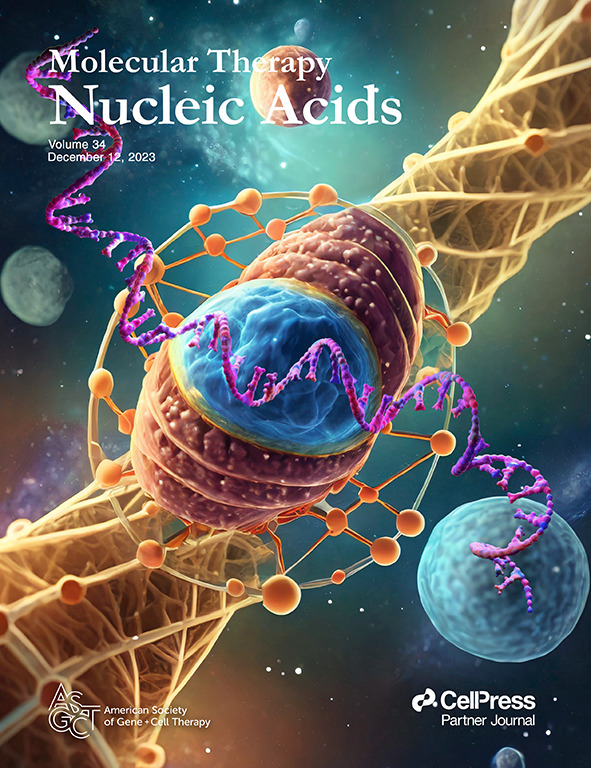老年乳腺癌的分子分类显示出具有预后意义的不同衰老亚群
IF 6.5
2区 医学
Q1 MEDICINE, RESEARCH & EXPERIMENTAL
引用次数: 0
摘要
与年轻患者相比,老年乳腺癌具有不同的生物学特征和临床治疗反应。建议根据生理分类对老年癌症患者进行综合老年评估,以评估治疗效果。然而,有关老年癌症患者分子分类的研究仍然不足。在本研究中,我们通过多组学分析在老年乳腺癌患者中发现了两个具有不同衰老集群的亚组。利用各种机器学习算法,我们建立了一个名为 "Sene_Signature "的综合评分模型,与现有方法相比,它能更准确地区分老年乳腺癌患者,并更好地预测其预后。Sene_Signature与肿瘤免疫细胞浸润相关,单细胞转录组学、RNA测序和病理数据也支持这一观点。此外,我们还观察到 Sene_Signature 高的患者对表皮生长因子受体和细胞周期通路靶向治疗的药物反应性增加。我们还建立了一个用户友好型网络平台,以帮助研究人员评估 Sene_Signature 评分和预测老年乳腺癌患者的治疗反应。总之,我们开发了一种用于评估预后和治疗反应的新型模型,提供了一种潜在的分子分类方法,有助于对老年乳腺癌进行治疗前评估。本文章由计算机程序翻译,如有差异,请以英文原文为准。
Molecular classification of geriatric breast cancer displays distinct senescent subgroups of prognostic significance
Breast cancer in the elderly presents distinct biological characteristics and clinical treatment responses compared with cancer in younger patients. Comprehensive Geriatric Assessment is recommended for evaluating treatment efficacy in elderly cancer patients based on physiological classification. However, research on molecular classification in older cancer patients remains insufficient. In this study, we identified two subgroups with distinct senescent clusters among geriatric breast cancer patients through multi-omics analysis. Using various machine learning algorithms, we developed a comprehensive scoring model called “Sene_Signature,” which more accurately distinguished elderly breast cancer patients compared with existing methods and better predicted their prognosis. The Sene_Signature was correlated with tumor immune cell infiltration, as supported by single-cell transcriptomics, RNA sequencing, and pathological data. Furthermore, we observed increased drug responsiveness in patients with a high Sene_Signature to treatments targeting the epidermal growth factor receptor and cell-cycle pathways. We also established a user-friendly web platform to assist investigators in assessing Sene_Signature scores and predicting treatment responses for elderly breast cancer patients. In conclusion, we developed a novel model for evaluating prognosis and therapeutic responses, providing a potential molecular classification that assists in the pre-treatment assessment of geriatric breast cancer.
求助全文
通过发布文献求助,成功后即可免费获取论文全文。
去求助
来源期刊

Molecular Therapy. Nucleic Acids
MEDICINE, RESEARCH & EXPERIMENTAL-
CiteScore
15.40
自引率
1.10%
发文量
336
审稿时长
20 weeks
期刊介绍:
Molecular Therapy Nucleic Acids is an international, open-access journal that publishes high-quality research in nucleic-acid-based therapeutics to treat and correct genetic and acquired diseases. It is the official journal of the American Society of Gene & Cell Therapy and is built upon the success of Molecular Therapy. The journal focuses on gene- and oligonucleotide-based therapies and publishes peer-reviewed research, reviews, and commentaries. Its impact factor for 2022 is 8.8. The subject areas covered include the development of therapeutics based on nucleic acids and their derivatives, vector development for RNA-based therapeutics delivery, utilization of gene-modifying agents like Zn finger nucleases and triplex-forming oligonucleotides, pre-clinical target validation, safety and efficacy studies, and clinical trials.
 求助内容:
求助内容: 应助结果提醒方式:
应助结果提醒方式:


